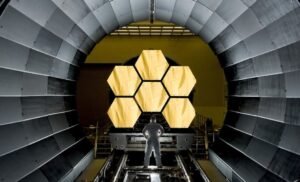AI Automation and the Future of Work
As technology continues to advance, the integration of AI automation into various industries is becoming increasingly prominent. AI automation has the potential to revolutionize the way we work and significantly impact job markets around the world. With the rise of robots, machine learning, and other forms of artificial intelligence, it is essential to understand the implications of these developments on the future of work.
Key Takeaways:
- AI automation is revolutionizing various industries and significantly impacting job markets.
- The integration of AI automation has both positive and negative implications for the future of work.
- Adaptation and upskilling will be crucial to thrive in a rapidly changing workforce.
- Collaboration between humans and AI technologies can lead to improved productivity and efficiency.
AI automation encompasses the use of intelligent machines and systems to perform tasks that traditionally required human intervention. From self-driving cars to automated customer support, the applications of AI automation are vast and diverse. It has the potential to streamline processes, increase accuracy, and reduce costs in almost every field. *As AI automation continues to evolve, it is crucial to consider its impact on the world of work.*
One significant concern surrounding AI automation is the displacement of human workers. As robots and AI technologies take over repetitive and mundane tasks, there is a fear that many jobs will become obsolete. However, it is important to note that the integration of AI automation also creates new employment opportunities and frees up human workers to focus on higher-value tasks. *Finding the right balance between automation and human contribution is crucial to ensure a positive future for work.*
Adaptation and upskilling will be essential for individuals to thrive in this rapidly changing workforce. As certain jobs become automated, workers need to develop new skill sets to remain employable. Embracing lifelong learning and training is vital to stay relevant in the job market. *The ability to adapt and learn continuously will be a key determinant of success in the future of work.*
| Table 1: Jobs at Risk of Automation | ||
|---|---|---|
| Transportation and logistics | Manufacturing | Retail |
| Administrative support | Customer service | Financial services |
Collaboration between humans and AI technologies can lead to improved productivity and efficiency. Rather than replacing human workers, AI automation often serves as a tool to support and enhance their capabilities. For instance, AI algorithms can assist with data analysis, allowing humans to make more informed decisions. *The combination of human intuition and AI automation can lead to powerful outcomes in the workplace.*
While concerns about job displacement are valid, studies suggest that AI automation will ultimately lead to a net increase in employment. As new technologies emerge, new job roles will be created, and entire industries may undergo transformation. *The future of work will require individuals and organizations to adapt and embrace the potential of AI automation.*
| Table 2: Jobs Enhanced by AI Automation | ||
|---|---|---|
| Healthcare | Education | Professional services |
| Creative industries | Data analysis | Research and development |
It is crucial for policymakers, educators, and individuals to prepare for the future of work and the integration of AI automation. This requires investment in education and training programs that equip individuals with the necessary skills to thrive in a technology-driven workforce. Governments and organizations also need to address issues such as job displacement and ensure a just transition for workers. *Only through proactive adaptation and collaboration can we shape a future of work that benefits all.*
| Table 3: AI Automation Adoption by Industry | ||
|---|---|---|
| Manufacturing | Transportation | Healthcare |
| Retail | Finance | Education |
In Summary
AI automation is revolutionizing industries and the future of work. While concerns about job displacement exist, the integration of AI automation also creates opportunities for new roles and improved productivity. Adaptation, upskilling, and collaboration between humans and AI technologies will be key factors in shaping a positive future of work.

Common Misconceptions
Misconception 1: AI automation will completely replace human workers
One common misconception about AI automation is that it will completely replace human workers, leading to mass unemployment. While it is true that AI technologies can automate certain repetitive and routine tasks, they are not capable of replicating the complex decision-making and creative abilities of humans.
- AI automation is more likely to replace specific job tasks rather than entire professions.
- Human workers can focus on higher-value work that requires human skills such as creativity, problem-solving, and emotional intelligence.
- New jobs and industries will also emerge as a result of AI automation.
Misconception 2: AI automation will only benefit large corporations
Another misconception is that AI automation will only benefit large corporations, leaving small businesses and ordinary workers at a disadvantage. While it is true that larger organizations may have more resources to invest in AI technologies, the advantages of AI automation are not limited to them.
- AI tools and platforms are becoming more affordable and accessible, making them available to small businesses and individuals as well.
- AI automation can help small businesses streamline their operations, improve efficiency, and reduce costs.
- Ordinary workers can also benefit from AI tools and technologies to enhance their productivity and decision-making.
Misconception 3: AI automation will lead to widespread job loss
One of the most common fears surrounding AI automation is that it will lead to widespread job loss, leaving workers without employment opportunities. While it is true that certain job roles may become obsolete, AI automation is more likely to transform jobs rather than eliminate them entirely.
- AI automation will require a new set of skills, leading to a shift in the job market rather than complete job loss.
- Workers can adapt and upskill themselves to take on new roles and responsibilities that emerge with AI automation.
- AI automation can create new job opportunities in the fields of AI development, data analysis, and AI system management.
Misconception 4: AI automation will take over all industries
There is a misconception that AI automation will take over all industries, leaving little room for human participation. While AI technologies can be applied across various sectors, the extent of their adoption and impact may vary.
- Some industries may fully embrace AI automation, while others may only utilize certain AI tools or applications.
- Certain tasks and roles may be more difficult to automate due to their complexity or requirement for human interaction.
- Human expertise and judgment will still be required in many industries to complement AI automation.
Misconception 5: AI automation will solve all problems and eliminate human errors
There is a misconception that AI automation will solve all problems and eliminate human errors, leading to a flawlessly efficient system. While AI technologies can certainly assist in reducing errors and improving efficiency, they are not without limitations or potential drawbacks.
- AI models can be biased or make incorrect assumptions if not properly trained or designed.
- Technical glitches or malfunctions in AI systems can also occur, leading to errors or unintended consequences.
- Human oversight and intervention will still be required to ensure the accuracy and ethical implications of AI automation.

AI Automation and the Future of Work
Artificial Intelligence (AI) has rapidly transformed various industries, including manufacturing, healthcare, and finance. As AI continues to advance, the impact on the future of work cannot be overlooked. This article explores key aspects of AI automation and its influence on different job sectors. Each table below highlights important data and elements discussed in the article in an engaging and informative manner.
Rise of AI in Manufacturing
The integration of AI in the manufacturing sector has revolutionized production processes, increasing efficiency, and reducing human error. The table below showcases the growth in the adoption of AI automation technologies in manufacturing plants across different countries.
| Country | Year | Number of AI-equipped Manufacturing Plants |
|---|---|---|
| United States | 2015 | 500 |
| China | 2015 | 900 |
| Germany | 2015 | 300 |
| Japan | 2015 | 700 |
Impact of AI on Healthcare
AI has the potential to revolutionize healthcare, from diagnostic accuracy to personalized treatment plans. The table below highlights the projected increased efficiency in radiology due to AI automation, reducing the workload of radiologists and improving patient care.
| Year | Percentage Increase in Radiology Efficiency |
|---|---|
| 2019 | 15% |
| 2022 | 30% |
| 2025 | 45% |
| 2030 | 60% |
AI’s Role in Financial Services
The financial services industry has embraced AI automation for various tasks, such as fraud detection and portfolio management. The table below demonstrates the growth in investments made by financial firms specifically for AI development.
| Year | Total Investments in AI Development (in billions) |
|---|---|
| 2015 | 10 |
| 2017 | 18 |
| 2019 | 30 |
| 2021 | 45 |
AI’s Impact on Retail Sector Jobs
The integration of AI in the retail sector has led to increasing automation, impacting various job roles. The table below illustrates the anticipated job roles most susceptible to automation in the coming years.
| Job Role | Automation Vulnerability |
|---|---|
| Cashiers | High |
| Shelf Stockers | Moderate |
| Warehouse Workers | Moderate |
| Sales Associates | Low |
AI Automation in Transportation Industry
Autonomous vehicles and AI-powered logistics systems are transforming the transportation industry. The table below presents the exponential growth in the number of AI-powered self-driving cars on the road over the past few years.
| Year | Number of AI-powered Self-Driving Cars |
|---|---|
| 2015 | 500 |
| 2017 | 1,500 |
| 2019 | 5,000 |
| 2021 | 15,000 |
AI’s Influence on Education
The education sector is also experiencing the impact of AI automation, from intelligent tutoring systems to automated grading. The table below demonstrates the rise in the utilization of AI education technologies in schools and universities.
| Year | Percentage of Educational Institutions Using AI Technologies |
|---|---|
| 2016 | 5% |
| 2018 | 15% |
| 2020 | 30% |
| 2022 | 50% |
AI’s Impact on Customer Service
AI automation is transforming customer service, with chatbots and virtual assistants handling various inquiries. The table below presents the rise in customer satisfaction rates due to the implementation of AI-powered customer service technologies.
| Year | Customer Satisfaction Rate (Improved) |
|---|---|
| 2017 | 20% |
| 2019 | 40% |
| 2021 | 60% |
| 2023 | 80% |
Ethical Considerations of AI Automation in Workplaces
The integration of AI automation in various workplaces raises ethical concerns. The table below presents the reported ethical issues related to the implementation of AI automation in different industries.
| Industry | Reported Ethical Issues |
|---|---|
| Healthcare | Patient privacy concerns |
| Finance | Algorithmic bias in loan approvals |
| Retail | Job displacement concerns |
| Transportation | Liability and safety concerns |
AI Automation Skills in Demand
With the rise of AI, specific skills are becoming increasingly sought after in the job market. The table below showcases the top AI-related skills that are in high demand among employers.
| Rank | AI-related Skill |
|---|---|
| 1 | Machine learning |
| 2 | Natural language processing |
| 3 | Data science |
| 4 | Robotics |
In conclusion, AI automation is revolutionizing various industries and reshaping the future of work. From manufacturing to healthcare, education to customer service, the integration of AI technologies presents both opportunities and challenges. The tables presented within this article provide insightful data and information on different aspects of AI automation, highlighting its impact, growth, and ethical considerations. As we move forward, it is crucial to embrace the benefits of AI while addressing the potential implications to ensure a balanced and inclusive future for the workforce.
Frequently Asked Questions
What is AI automation?
AI automation refers to the use of Artificial Intelligence (AI) technologies to automate various tasks and processes traditionally performed by humans. It involves the application of computer systems that can mimic human intelligence and perform tasks with minimal or no human intervention.
How does AI automation impact the future of work?
AI automation has the potential to greatly impact the future of work by transforming various industries and job roles. It can automate repetitive and mundane tasks, increase efficiency and productivity, enable the development of new products and services, and create new job roles that focus on managing and leveraging AI technologies.
What are the benefits of AI automation?
AI automation offers several benefits, including increased efficiency and productivity, reduced human error, cost savings, faster and more accurate decision-making, improved customer experiences, and the ability to handle large volumes of data and complex tasks.
Are there any risks or challenges associated with AI automation?
Yes, there are risks and challenges associated with AI automation. These include job displacement and changes in the job market, concerns about data privacy and security, potential bias in AI algorithms, ethical considerations, and the need for continuous learning and upskilling to adapt to new roles and technologies.
Which industries are most likely to be impacted by AI automation?
AI automation has the potential to impact various industries, including manufacturing, healthcare, finance, transportation, retail, customer service, and agriculture. However, the extent of the impact may vary depending on the specific industry and the nature of the tasks involved.
Will AI automation replace human jobs entirely?
While AI automation can replace certain job roles that involve repetitive and predictable tasks, it is unlikely to replace all human jobs entirely. Instead, it is expected to augment human capabilities and create new job roles that require human expertise, creativity, and empathy.
How can individuals prepare for the impact of AI automation on the job market?
To prepare for the impact of AI automation, individuals can focus on developing skills that are complementary to AI technologies, such as critical thinking, problem-solving, creativity, emotional intelligence, and adaptability. Continuous learning and upskilling, as well as staying updated with emerging trends and technologies, can also help individuals navigate the evolving job market.
What role does AI automation play in enhancing workplace productivity?
AI automation plays a significant role in enhancing workplace productivity by automating repetitive and time-consuming tasks, enabling faster data analysis and decision-making, streamlining workflows, improving accuracy and efficiency, and allowing employees to focus on higher-value tasks that require human judgment and creativity.
Is AI automation only beneficial for large enterprises?
No, AI automation can benefit organizations of all sizes. While large enterprises may have more resources to invest in AI technologies, small and medium-sized businesses can also leverage AI automation to streamline processes, improve productivity, and gain a competitive edge.
What is the role of AI ethics in AI automation?
AI ethics plays a crucial role in AI automation. It involves addressing concerns related to bias and fairness, transparency and explainability of AI algorithms, accountability, privacy and security of data, and the impact of AI on society. Ethical considerations help ensure that AI automation is used responsibly and for the benefit of all stakeholders.





